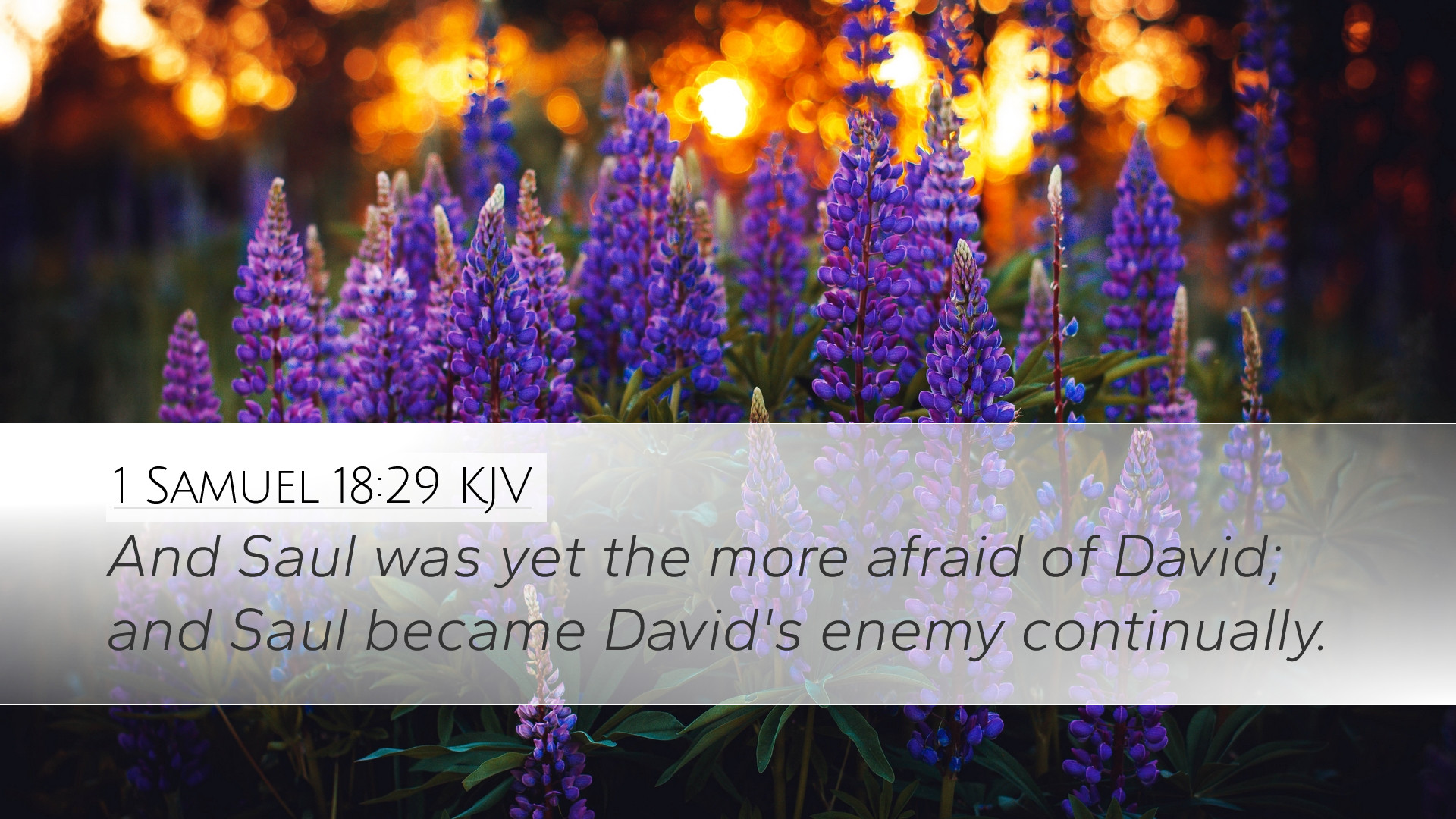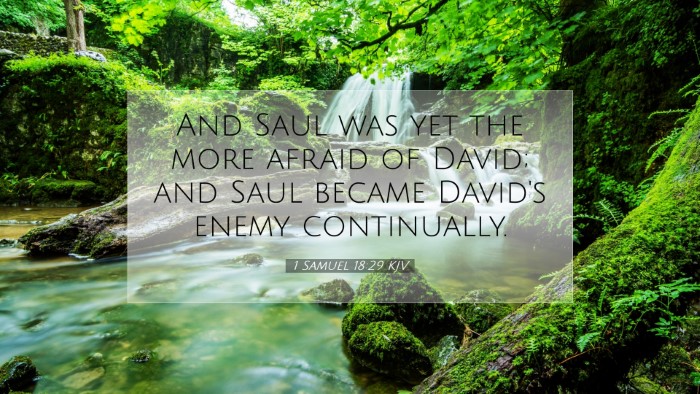Commentary on 1 Samuel 18:29
Verse Context:
In 1 Samuel 18:29, we find the dynamic between King Saul and David intensifying. The verse reads: "And Saul was yet the more afraid of David; and Saul became David’s enemy continually." This encapsulates a pivotal moment in the narrative that marks the transition of David from servant to adversary in Saul's eyes.
Historical and Literary Context
The passage occurs during a turbulent period in Israel's history. David, celebrated as a mighty warrior after defeating Goliath, had garnered the favor of the people. However, this success incites Saul's jealousy, leading to a profound change in their relationship. The verse serves as a critical juncture that underscores themes of envy, fear, and the tragic downfall of Saul.
Insights from Public Domain Commentaries
Matthew Henry's Commentary
Henry highlights the psychological aspect of Saul's fear, noting that "fear is a great motive, and jealousy is an evil frame of spirit." He emphasizes the irrationality of Saul’s fear, suggesting that it contrasted sharply with David’s loyalty and goodness. Instead of uniting the nation against their enemies, Saul's growing fear led him away from rational leadership into a continual state of animosity toward David, ultimately harming both himself and Israel.
Albert Barnes' Notes on the Bible
Barnes elaborates on the implications of Saul's fear, recognizing it not just as a personal failure but as a divine judgment against him. He asserts, "God had left Saul and was with David," which drew the ire of Saul even more. This statement posits that Saul’s fear is not merely a response to David’s rising popularity, but an acknowledgment of God’s favor upon David. Barnes also notes how this animosity leads Saul to become increasingly erratic in his leadership, showcasing the destructive nature of envy and pride.
Adam Clarke's Commentary
Clarke brings attention to the perpetual nature of Saul’s enmity towards David, suggesting that it was not just a fleeting emotion but rather a chronic condition of his spirit. He remarks that "jealousy and fear will always lead a person to act against their own best interests." Clarke also raises the idea that Saul's fear is reflective of a deeper issue—the fear of losing control and power, which illustrates the moral and spiritual decay that jealousy can cause.
Theological Implications
Theologically, this passage serves as a reminder of the consequences of human emotions, particularly envy and fear, which can distort judgment and lead to sin. It underscores a significant biblical truth: that God’s favor can provoke hostility in the hearts of those who feel threatened.
- Human Emotion and Sin: The extreme emotions exhibited by Saul highlight how unchecked feelings can lead to actions that are damaging not only to others but to oneself.
- Divine Favor: God's choosing of David over Saul illustrates the unpredictability of divine favor, suggesting that earthly power is no guarantee against divine judgment.
- The Nature of Leadership: Saul's growing paranoia and fear expose the vulnerabilities in leadership, making clear the importance of humility and reliance on God.
Pastoral Reflections
For pastors and church leaders, this passage serves as a cautionary tale regarding jealousy and the management of personal emotions in leadership roles. It reminds leaders to cultivate a spirit of camaraderie and support rather than one of contention. Moreover, the passage invites leaders to reflect on their own relationships and ensure that they are not fostering an environment of suspicion and discord, but one of love and unity.
Conclusion
In summary, 1 Samuel 18:29 is a profound verse that encapsulates the themes of jealousy, fear, and the struggle for power within the context of divine sovereignty. The insights gleaned from Matthew Henry, Albert Barnes, and Adam Clarke collectively provide a rich tapestry of understanding that is beneficial for pastors, students, theologians, and Bible scholars alike. As we reflect on this narrative, may we be challenged to examine our own hearts and leadership styles, ensuring they align with God's intention for unity and peace rather than division and strife.


